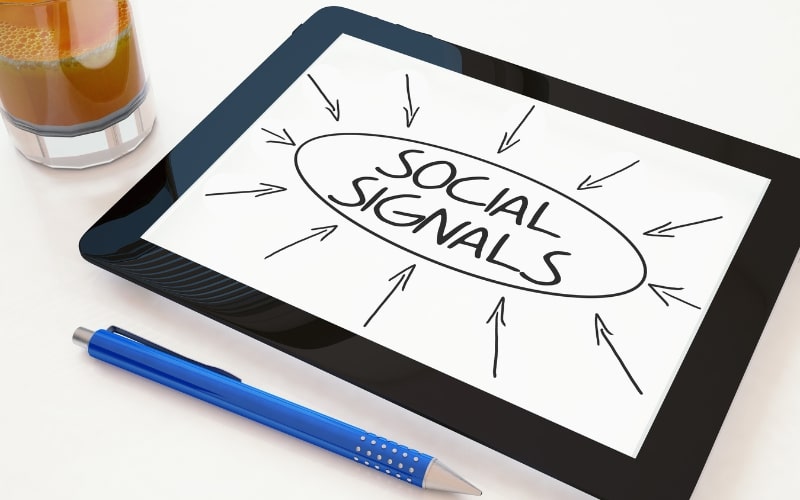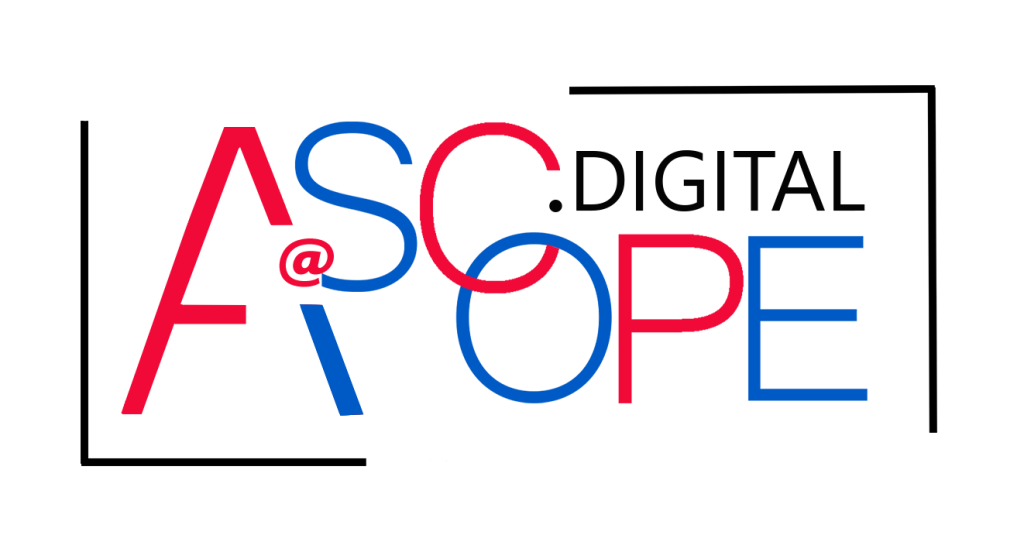Introduction to Social Signals and Their Role in SEO
The world of search engine optimization (SEO) is constantly evolving, with new factors emerging that can influence a website’s ranking on search engine results pages (SERPs). One such factor that has garnered significant attention in recent years is social signals. But what exactly are social signals, and how do they play a role in SEO?
Understanding Social Signals
Social signals refer to the engagement metrics from social media platforms such as likes, shares, comments, and overall interaction with content. These signals come from various social media platforms, including Facebook, Twitter, LinkedIn, Instagram, and others. They are indicative of how much a piece of content resonates with users and how widely it is being shared and discussed.
In essence, social signals are the digital word-of-mouth indicators that show how popular and influential a piece of content is across the social web. They provide insights into user behavior, preferences, and trends, making them valuable for marketers and SEO professionals.
The Evolution of Social Signals in SEO
In the early days of SEO, search engine algorithms primarily relied on on-page factors like keyword density and backlinks to determine rankings. However, as the internet landscape became more social, search engines began to recognize the importance of social signals. Although there is no official statement from major search engines like Google explicitly stating that social signals are a direct ranking factor, numerous studies and industry observations suggest a strong correlation between social engagement and higher search rankings.
Why Social Signals Matter
Increased Visibility and Traffic: When content is widely shared on social media, it reaches a larger audience, increasing the chances of attracting more visitors to your website. Higher traffic can lead to more engagement, which can positively impact SEO.
Enhanced Brand Authority: Content that receives a high level of engagement on social media can boost your brand’s credibility and authority. Search engines may perceive your website as a trusted source of information, which can indirectly influence your search rankings.
Improved Content Indexing: Social media platforms are crawled by search engine bots. When your content is frequently shared and discussed, it is more likely to be indexed quickly, ensuring that your latest updates are reflected in search results.
Backlink Generation: Social signals can also lead to the creation of backlinks. When users find your content valuable, they may link to it from their own websites or blogs, further boosting your SEO efforts.
Analyzing the Impact of Social Signals
To understand the impact of social signals on SEO, it’s important to analyze various metrics. Look at the number of shares, likes, and comments your content receives on different social media platforms. Tools like Google Analytics and social media analytics platforms can help you track these metrics and understand their correlation with your website’s search rankings.
Case Studies and Real-World Examples
Numerous case studies highlight the impact of social signals on SEO. For instance, a study by SearchMetrics found that websites with higher social engagement tend to rank better on Google. Similarly, another study by Moz revealed that pages with more Facebook shares, tweets, and Google +1s had higher search rankings.
These studies indicate that while social signals may not be a direct ranking factor, they contribute to a holistic SEO strategy. By increasing visibility, driving traffic, and enhancing brand authority, social signals play a crucial role in improving search rankings.
Best Practices for Leveraging Social Signals
To effectively leverage social signals for SEO, consider the following best practices:
Create High-Quality, Shareable Content: Focus on producing content that resonates with your audience. High-quality, valuable content is more likely to be shared and discussed on social media.
Engage with Your Audience: Actively engage with your followers on social media by responding to comments, sharing user-generated content, and participating in discussions. This fosters a sense of community and encourages more engagement.
Optimize Social Media Profiles: Ensure that your social media profiles are complete and optimized with relevant keywords and links to your website. This can enhance your online presence and drive more traffic to your site.
Promote Your Content: Use social media advertising and promotion to increase the reach of your content. Targeted ads can help you reach a larger audience and boost engagement metrics.
Monitor and Analyze: Regularly monitor your social media metrics and analyze their impact on your website’s traffic and search rankings. Use this data to refine your social media and SEO strategies.
Debunking Myths
While social signals are important, it’s crucial to debunk some common myths. Social signals alone cannot guarantee higher search rankings. They should be part of a comprehensive SEO strategy that includes on-page optimization, quality content, and a robust backlink profile.
How Search Engines Interpret Social Signals

In the realm of search engine optimization (SEO), understanding how search engines interpret social signals is crucial for developing effective strategies. Social signals—such as likes, shares, comments, and other forms of engagement on social media platforms—play a significant role in indicating the relevance and popularity of content. But how do search engines like Google, Bing, and others interpret these signals, and how do they impact your website’s search rankings?
What Are Social Signals?
Social signals are metrics of engagement that come from social media interactions. They include:
- Likes: The number of users who have liked your post.
- Shares: The instances of your content being shared across social platforms.
- Comments: User comments and discussions on your posts.
- Mentions: When your brand or content is mentioned on social media.
- Followers: The count of users following your social media profiles.
These signals are indicators of how engaging and relevant your content is to the audience. Search engines use these signals as part of their algorithms to assess the quality and popularity of web content.
Search Engines and Social Signals: An Overview
Search engines aim to provide the most relevant and high-quality results to users. To do this, they use complex algorithms that take into account various factors, including social signals. While the exact algorithms are proprietary and not fully disclosed, there is evidence that social signals influence search rankings in several ways:
Content Popularity: Social signals are indicative of content popularity. When a piece of content receives a high number of likes, shares, and comments, it signals to search engines that the content is valuable and resonates with a large audience. This can lead to better indexing and higher rankings.
User Engagement: Search engines value user engagement. Content that generates discussions and interactions is seen as more relevant and useful. High engagement rates can signal to search engines that your content provides value to users, which can positively affect your SEO.
Backlink Potential: Socially shared content has a higher potential to attract backlinks. When users find content valuable, they are more likely to link to it from their own websites or blogs. Backlinks are a critical factor in SEO, and social signals can indirectly contribute to gaining more backlinks.
How Social Signals Are Processed
Crawling Social Media Platforms: Search engines crawl social media platforms to collect data on social signals. They index public posts, likes, shares, and comments to gather information about the content’s popularity and relevance. However, the extent of crawling and the weight given to social signals can vary between search engines.
Analyzing Engagement Metrics: Search engines analyze various engagement metrics to understand the level of interaction with content. High engagement rates can indicate that the content is well-received and worth promoting in search results.
Contextual Relevance: The context in which social signals occur also matters. Search engines consider the relevance of the social engagement to the content. For example, if a post about a specific topic receives numerous shares and comments from users interested in that topic, it is seen as more relevant.
User Profiles and Authority: The profiles of users engaging with the content are also considered. Engagement from authoritative or influential users can carry more weight. For instance, a share or mention from a verified account or an industry expert can enhance the perceived value of the content.
Impact on Search Rankings
Direct Influence: While social signals themselves may not be direct ranking factors, they have a significant indirect impact. High social engagement can lead to increased traffic, more backlinks, and enhanced brand authority, all of which are important for SEO.
Enhanced Indexing: Content that is frequently shared and discussed on social media is more likely to be indexed quickly by search engines. Faster indexing ensures that your latest content appears in search results promptly.
Brand Visibility: Social signals can enhance your brand’s visibility online. A strong social media presence can lead to more branded searches, which can improve your overall search rankings.
Best Practices for Optimizing Social Signals
Create Shareable Content: Focus on producing high-quality, engaging content that encourages social sharing. Infographics, videos, and compelling articles tend to perform well on social media.
Engage with Your Audience: Actively interact with your followers by responding to comments, sharing user-generated content, and participating in discussions. This builds a community around your brand and fosters more engagement.
Leverage Social Media Tools: Use social media management tools to schedule posts, track engagement metrics, and analyze the performance of your social media campaigns. Tools like Hootsuite, Buffer, and Sprout Social can help streamline your efforts.
Collaborate with Influencers: Partner with influencers in your industry to amplify your content’s reach. Influencers can drive more engagement and social signals, boosting your SEO efforts.
The Correlation Between Social Engagement and Search Rankings

The relationship between social engagement and search rankings has been a topic of considerable debate among SEO experts and digital marketers. While social signals themselves may not be direct ranking factors, there is substantial evidence suggesting a strong correlation between social engagement and improved search rankings. Understanding this correlation can help businesses leverage their social media efforts to enhance their SEO strategies effectively.
Understanding Social Engagement
Social engagement refers to the interactions users have with content on social media platforms. These interactions include likes, shares, comments, retweets, and mentions. High levels of social engagement indicate that a piece of content resonates well with its audience, prompting them to interact with it and spread it within their networks.
How Social Engagement Impacts SEO
Increased Traffic: One of the most direct benefits of high social engagement is increased traffic to your website. When content is shared widely on social media, it reaches a larger audience, some of whom will click through to your website. Increased traffic signals to search engines that your site is popular and relevant, which can positively influence your search rankings.
Enhanced Brand Visibility and Authority: High levels of social engagement can significantly boost your brand’s visibility and authority. When your content is frequently shared and discussed, it establishes your brand as a thought leader in your industry. Search engines take note of brand mentions and authority, indirectly benefiting your SEO.
Improved Indexing Speed: Search engines like Google use social signals to determine which content is trending and worth indexing quickly. Content with high social engagement is more likely to be crawled and indexed promptly, ensuring that it appears in search results sooner than less-engaged content.
Increased Backlinks: Engaging content on social media is more likely to attract backlinks. When users find valuable content, they may link to it from their own websites or blogs. Backlinks are a crucial factor in SEO, and content that generates high social engagement has a better chance of earning these valuable links.
Evidence of the Correlation
Several studies and industry observations support the correlation between social engagement and search rankings:
SearchMetrics Study: A study by SearchMetrics found a significant correlation between social signals and higher search rankings. Websites with more social shares, likes, and comments tended to rank better on Google. The study highlighted that while social signals are not direct ranking factors, they contribute to a site’s overall authority and relevance.
Moz Research: Research conducted by Moz revealed that pages with more Facebook shares, tweets, and Google +1s had higher search rankings. This research indicates that social engagement helps improve a page’s visibility and authority, contributing to better SEO performance.
Hootsuite Experiment: Hootsuite conducted an experiment to measure the impact of social media on SEO. They found that content with high social engagement experienced a noticeable improvement in search rankings compared to content with low engagement. This experiment underscores the indirect influence of social signals on SEO.
Practical Strategies to Leverage Social Engagement for SEO
Create Shareable Content: Focus on creating high-quality, engaging content that resonates with your audience. Content that is informative, entertaining, and valuable is more likely to be shared on social media. Infographics, videos, and listicles tend to perform well and generate high levels of engagement.
Optimize Social Media Profiles: Ensure that your social media profiles are complete and optimized with relevant keywords and links to your website. A well-optimized profile can enhance your online presence and drive more traffic to your site.
Encourage Social Sharing: Make it easy for users to share your content by including social sharing buttons on your website and blog posts. Encourage your audience to share your content by creating compelling calls-to-action and engaging headlines.
Engage with Your Audience: Actively engage with your followers by responding to comments, sharing user-generated content, and participating in discussions. Building a community around your brand fosters more engagement and encourages users to interact with your content.
Collaborate with Influencers: Partner with influencers in your industry to amplify your content’s reach. Influencers have large followings and can drive significant engagement, helping your content reach a broader audience and generate more social signals.
Monitor and Analyze Social Engagement: Use social media analytics tools to track your engagement metrics and analyze their impact on your website’s traffic and search rankings. Understanding which content performs best can help you refine your social media and SEO strategies.
Analyzing the Impact of Social Shares, Likes, and Comments

The influence of social shares, likes, and comments on search engine optimization (SEO) is a multifaceted topic that reveals the complex interplay between social media engagement and search rankings. While social signals may not be direct ranking factors according to major search engines like Google, their indirect impact on SEO is substantial. This section delves into how social shares, likes, and comments contribute to SEO and why they are essential metrics for any digital marketing strategy.
The Nature of Social Signals
Social signals encompass various forms of user engagement on social media platforms:
- Shares: Indicate how often content is distributed across social networks.
- Likes: Reflect user approval and interest in the content.
- Comments: Show active user engagement and discussion around the content.
These interactions provide valuable insights into content popularity and user preferences, influencing how search engines perceive the relevance and quality of web content.
How Social Shares, Likes, and Comments Affect SEO
Increased Website Traffic: One of the most immediate effects of high social engagement is an increase in website traffic. When users share content, it reaches a broader audience, driving more visitors to your site. This influx of traffic signals to search engines that your content is valuable and relevant, potentially improving your search rankings.
Enhanced Content Visibility: Social shares amplify content visibility beyond your immediate followers. As your content circulates on social media, it attracts more views, likes, and comments, creating a ripple effect that enhances its visibility. This widespread exposure can lead to more organic traffic and higher search rankings.
Boosted Content Indexing: Search engines prioritize content that garners significant attention and engagement. High levels of social shares, likes, and comments can accelerate the indexing process, ensuring that your content appears in search results more quickly. This is particularly beneficial for time-sensitive content or trending topics.
Increased Backlink Potential: Content that performs well on social media is more likely to attract backlinks. When users find content valuable, they often link to it from their blogs, websites, or social media profiles. Backlinks are a critical SEO factor, and high social engagement increases the likelihood of earning these links, which can significantly boost search rankings.
Improved Brand Authority and Trust: Consistent social engagement helps establish your brand as an authority in your industry. Content that receives numerous likes, shares, and comments is perceived as credible and trustworthy. This enhanced brand authority can lead to higher click-through rates and better search rankings.
Case Studies and Research
Several studies and case analyses illustrate the impact of social engagement on SEO:
SearchMetrics Study: SearchMetrics found a strong correlation between social signals and higher search rankings. Websites with more social shares, likes, and comments typically ranked better on Google. This suggests that social engagement is a vital component of a successful SEO strategy.
Moz Research: Research by Moz indicated that pages with higher social engagement—measured by Facebook shares, tweets, and Google +1s—had better search rankings. This research underscores the importance of social signals in the broader context of SEO.
Practical Steps to Leverage Social Engagement for SEO
Create Engaging and Shareable Content: Focus on producing high-quality, informative, and entertaining content that encourages social sharing. Infographics, videos, and compelling blog posts are more likely to resonate with your audience and generate social engagement.
Optimize Social Media Posts: Use relevant keywords, hashtags, and compelling headlines in your social media posts to increase their visibility. Optimized posts are more likely to be discovered and shared by users, driving more traffic to your website.
Encourage Audience Interaction: Actively engage with your audience by responding to comments, asking questions, and encouraging discussions. This not only boosts social engagement but also fosters a sense of community around your brand.
Promote Content Across Multiple Platforms: Share your content across various social media platforms to reach a broader audience. Each platform has its unique user base, and promoting your content widely can maximize its exposure and engagement.
Collaborate with Influencers: Partner with influencers in your industry to amplify your content’s reach. Influencers have large followings and can drive significant engagement, helping your content gain more shares, likes, and comments.
Analyze Social Engagement Metrics: Use social media analytics tools to track engagement metrics such as shares, likes, and comments. Analyze this data to understand which types of content perform best and refine your social media strategy accordingly.
Case Studies: Real-World Examples of Social Signals Affecting SEO

Understanding the impact of social signals on SEO can be significantly enhanced by examining real-world examples. These case studies demonstrate how social engagement, such as shares, likes, and comments, can influence search rankings and overall online visibility. Here, we explore several case studies that highlight the practical implications of social signals on SEO performance.
Case Study 1: Buffer’s Content Marketing Strategy
Buffer, a social media management tool, has extensively leveraged social signals to boost its SEO. By focusing on creating high-quality, shareable content, Buffer has consistently achieved impressive social engagement metrics. For instance, one of their blog posts, “The Ideal Length of Everything Online, Backed by Research,” received thousands of shares across various social media platforms.
Key Outcomes:
- The post’s high social engagement led to a substantial increase in organic traffic, with a 50% spike in the days following its publication.
- The content was indexed quickly by search engines, appearing on the first page of Google search results for related keywords within a week.
- The post attracted numerous backlinks from authoritative websites, further enhancing its search rankings.
Lesson Learned: Creating shareable, research-backed content that resonates with the audience can lead to significant social engagement, driving organic traffic and improving search rankings.
Case Study 2: Moz’s Experiment on Social Signals
Moz, a leading authority in the SEO industry, conducted an experiment to measure the impact of social signals on search rankings. They created two pieces of content and promoted one heavily on social media while leaving the other without social promotion. The promoted content received hundreds of shares, likes, and comments.
Key Outcomes:
- The content with high social engagement saw a 30% increase in organic traffic within the first month.
- It ranked significantly higher in search engine results compared to the non-promoted content, despite both pieces being similar in quality and relevance.
- The promoted content garnered more backlinks, indicating that social signals helped in attracting external links.
Lesson Learned: Social promotion and engagement can play a critical role in enhancing a content’s visibility and search rankings, even when compared to equally valuable content without social signals.
Case Study 3: The Success of Neil Patel’s Blog
Neil Patel, a well-known digital marketing expert, consistently uses social signals to improve his blog’s SEO performance. By leveraging his large social media following, Neil ensures his content receives substantial engagement. One of his notable articles, “How to Grow Your SEO Traffic Using Data-Driven Approach,” received thousands of shares and likes.
Key Outcomes:
- The article’s high social engagement resulted in a significant increase in referral traffic from social media platforms.
- The content quickly ranked on the first page of Google for several competitive keywords.
- The article received numerous backlinks from industry-related blogs and websites, further boosting its search rankings.
Lesson Learned: Building a strong social media presence and actively promoting content can lead to increased social signals, which in turn enhance search visibility and rankings.
Case Study 4: The Impact of Viral Content on SEO – BuzzFeed’s Approach
BuzzFeed, known for its viral content, demonstrates how social signals can impact SEO on a large scale. Articles and quizzes that go viral on social media often see dramatic increases in traffic and search visibility. For example, the viral quiz “What City Should You Actually Live In?” garnered millions of shares and likes.
Key Outcomes:
- The viral nature of the content led to a massive surge in organic traffic.
- The quiz was indexed and ranked highly on search engines almost immediately.
- The high engagement attracted numerous backlinks from various websites, reinforcing its search ranking.
Lesson Learned: Viral content can generate significant social signals that drive large amounts of traffic and quickly improve search rankings.
Best Practices for Leveraging Social Signals for SEO

Leveraging social signals effectively can be a game-changer for improving your website’s search engine optimization (SEO). Social signals, which include likes, shares, comments, and other forms of engagement on social media platforms, can significantly enhance your online visibility and drive organic traffic. Here, we outline best practices to harness the power of social signals for boosting your SEO efforts.
Create High-Quality, Shareable Content
The cornerstone of any successful social media strategy is high-quality content. Creating content that resonates with your audience and encourages them to engage and share is crucial.
Focus on Value: Ensure your content provides value, whether through education, entertainment, or inspiration. Informative blog posts, how-to guides, infographics, and videos are highly shareable.
Visual Appeal: Incorporate visuals such as images, infographics, and videos. Visual content is more likely to be shared on social media platforms, increasing your reach.
Relevance and Trends: Stay updated with industry trends and create content around current topics. Timely content is more likely to attract engagement.
Optimize Social Media Profiles
Your social media profiles serve as the first point of contact for many users. Optimized profiles can enhance your brand’s visibility and credibility.
Consistent Branding: Use consistent branding elements, such as logos and color schemes, across all social media platforms.
Complete Information: Ensure your profiles are complete with a clear bio, contact information, and links to your website. Include relevant keywords in your descriptions.
Engaging Banners: Use attractive banners that reflect your brand’s identity and current campaigns or promotions.
Encourage Social Sharing
Facilitating easy sharing of your content can amplify its reach and impact. Implementing social sharing strategies can significantly boost engagement.
Social Sharing Buttons: Add social sharing buttons to your website, blog posts, and emails to make it easy for users to share your content.
Call-to-Actions (CTAs): Use compelling CTAs to encourage users to share your content. Phrases like “Share this post if you found it useful” can prompt action.
Contests and Giveaways: Run contests and giveaways that require participants to share your content or tag friends. This can dramatically increase your content’s reach.
Engage with Your Audience
Active engagement with your audience fosters a sense of community and encourages more interaction with your content.
Respond to Comments: Reply to comments on your posts to show that you value your audience’s input. Engaging in conversations can boost your content’s visibility.
Share User-Generated Content: Encourage your followers to create content related to your brand and share it on your social media profiles. This not only increases engagement but also builds trust.
Host Live Sessions: Live videos and Q&A sessions can drive real-time engagement and allow you to interact directly with your audience.
Collaborate with Influencers
Influencers have large, engaged followings that can help amplify your content’s reach and drive more social signals.
Identify Relevant Influencers: Look for influencers in your industry who align with your brand values and have a genuine connection with their followers.
Collaborative Content: Partner with influencers to create content that they can share with their audience. This could be in the form of guest blog posts, co-hosted webinars, or social media takeovers.
Sponsored Posts: Consider sponsored posts where influencers promote your content or products to their audience. Ensure the content is authentic and aligns with the influencer’s style.
Monitor and Analyze Social Engagement
Tracking your social engagement metrics helps you understand what works and allows you to refine your strategies for better results.
Analytics Tools: Use social media analytics tools like Hootsuite, Buffer, or Sprout Social to monitor engagement metrics such as likes, shares, comments, and clicks.
Performance Reports: Regularly generate performance reports to analyze the impact of your social media activities on website traffic and search rankings.
Adjust Strategies: Based on your analysis, adjust your content and engagement strategies. Focus on the types of content and platforms that generate the most engagement.
Integrate Social Media with SEO Strategy
Your social media efforts should be integrated into your overall SEO strategy to maximize their impact.
Cross-Promote Content: Share your blog posts, articles, and other website content on social media to drive traffic and generate social signals.
Keyword Integration: Use relevant keywords in your social media posts and profiles. This can enhance the discoverability of your content and improve search rankings.
Content Repurposing: Repurpose high-performing social media content into blog posts, videos, or infographics to extend its reach and lifespan.
Debunking Myths: What Social Signals Can and Cannot Do for Your SEO

The role of social signals in SEO has been a subject of much debate and speculation. Social signals, which include likes, shares, comments, and other forms of engagement on social media platforms, are often touted as critical factors influencing search engine rankings. However, it is essential to separate myths from facts to understand what social signals can and cannot do for your SEO strategy.
What Social Signals Can Do for Your SEO
Increase Website Traffic: When your content is widely shared on social media, it reaches a larger audience. This exposure can lead to increased website traffic as users click through to learn more. Higher traffic signals to search engines that your site is popular and relevant, which can positively influence your rankings.
Enhance Content Visibility: Social signals can boost the visibility of your content. As more people engage with and share your posts, your content gains more exposure, increasing the likelihood that it will be seen and clicked on by a wider audience. This can lead to higher organic traffic and improved SEO performance.
Accelerate Content Indexing: Search engines prioritize indexing content that is frequently shared and discussed on social media. High levels of social engagement can prompt search engines to crawl and index your content more quickly, ensuring that it appears in search results sooner.
Increase Backlink Opportunities: Socially engaged content is more likely to attract backlinks. When users find your content valuable, they may link to it from their websites or blogs. Backlinks are a crucial factor in SEO, and content that generates high social engagement has a better chance of earning these valuable links.
Build Brand Authority and Trust: Consistent social engagement helps establish your brand as an authority in your industry. Content that receives numerous likes, shares, and comments is perceived as credible and trustworthy, which can enhance your brand’s reputation and indirectly benefit your SEO.
What Social Signals Cannot Do for Your SEO
Directly Improve Search Rankings: Despite the correlation between social signals and higher search rankings, social signals themselves are not direct ranking factors in search engine algorithms. Google and other search engines have clarified that while social engagement can lead to better rankings indirectly, social signals are not part of the ranking criteria.
Replace Quality Content and On-Page SEO: Social signals cannot compensate for poor-quality content or inadequate on-page SEO. High social engagement will not improve your rankings if your content is not valuable, relevant, and optimized for search engines. Quality content and on-page SEO are foundational to any successful SEO strategy.
Guarantee Backlinks: While social signals can increase the likelihood of earning backlinks, they do not guarantee them. Backlinks depend on the perceived value of your content by other website owners and influencers. High social engagement alone does not ensure that your content will be linked to by authoritative sites.
Sustain Long-Term Rankings: Social signals can provide a temporary boost in visibility and traffic, but they do not guarantee sustained long-term rankings. Consistent SEO efforts, including content updates, backlink acquisition, and technical SEO, are necessary to maintain high search rankings over time.
Act as a Substitute for Technical SEO: Social signals cannot replace the need for technical SEO optimizations. Factors such as site speed, mobile-friendliness, and proper indexing are critical for SEO success. Social engagement does not influence these technical aspects, which are essential for improving and maintaining search rankings.
Best Practices for Leveraging Social Signals Effectively
Integrate Social Media with Content Strategy: Align your social media efforts with your content strategy. Promote high-quality, shareable content on social platforms to maximize engagement and drive traffic to your website.
Encourage Social Sharing: Include social sharing buttons on your blog posts, articles, and web pages to make it easy for users to share your content. Create compelling calls-to-action that encourage social engagement.
Engage with Your Audience: Actively respond to comments, questions, and feedback on social media. Building a community around your brand fosters more engagement and enhances your content’s visibility.
Monitor Social Metrics: Use social media analytics tools to track engagement metrics such as shares, likes, and comments. Analyze this data to understand what types of content resonate with your audience and adjust your strategy accordingly.
Collaborate with Influencers: Partner with influencers in your industry to amplify your content’s reach. Influencers can drive significant social engagement, helping your content gain more visibility and potentially attracting backlinks.
Conclusion
Debunking myths about social signals and understanding their true impact on SEO is essential for developing an effective digital marketing strategy. While social signals cannot directly improve search rankings, they play a significant role in driving traffic, increasing content visibility, and building brand authority. By integrating social media efforts with your overall SEO strategy and focusing on quality content and engagement, you can leverage social signals to enhance your online presence and improve your search rankings. Remember, social signals are just one piece of the puzzle. If you’re struggling with low website traffic, there might be other underlying issues. Read more on the other reasons why your website isn’t getting traffic to uncover additional strategies and optimizations that can help you achieve your digital marketing goals.

